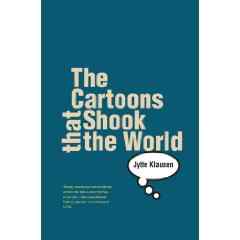- MENU
- HOME
- SEARCH
- WORLD
- MAIN
- AFRICA
- ASIA
- BALKANS
- EUROPE
- LATIN AMERICA
- MIDDLE EAST
- United Kingdom
- United States
- Argentina
- Australia
- Austria
- Benelux
- Brazil
- Canada
- China
- France
- Germany
- Greece
- Hungary
- India
- Indonesia
- Ireland
- Israel
- Italy
- Japan
- Korea
- Mexico
- New Zealand
- Pakistan
- Philippines
- Poland
- Russia
- South Africa
- Spain
- Taiwan
- Turkey
- USA
- BUSINESS
- WEALTH
- STOCKS
- TECH
- HEALTH
- LIFESTYLE
- ENTERTAINMENT
- SPORTS
- RSS
- iHaveNet.com
Paul Greenberg
This time
But the same forces that long have held much of the Muslim East in thrall, enforcing the most radical of Islamic prohibitions, now are reaching out to dictate to the West, too. And they've found a willing accomplice in
This book was going to offer some needed perspective by including other drawings of Mohammed from centuries past. But it's not just the Danish cartoons that now have been excised from the manuscript but all the others. Despite their historical relevance to the topic at hand.
Among the works that didn't make it into the book: a 19th-century print by Gustave Doré illustrating Dante's "Inferno," another from a children's book, and even an old Ottoman print. All of those, too, were considered too hot for
The moral of this sad story, or at least one of them, is that those afraid to publish commentary on contemporary issues will soon enough be driven to suppress the past, too.
George Orwell knew how this worked. (See how history was constantly being rewritten in "1984" by the Winston Smiths at the
One of the distinguishing marks of an American in the early years of the Republic was simple candor; he was a man unaccustomed to bowing and scraping before the old nobility of Europe. Or anyone else. But now
There are so many things wrong with that statement, one scarcely knows where to begin, or end. But one of Mr. Donatich's misunderstandings is that the responsibility for any violence that follows an exercise of free speech falls on those exercising it, not those who commit the violence.
The violent of the Islamic world will only be given additional encouragement by
It's not our enemies who present the gravest threat to Western civilization, but those who would give up their own freedom to appease the tyrants of the world.
Not only is
Meanwhile, the experts who aren't afraid to speak honestly can only shake their heads over
The book's author, Jytte Klausen, wasn't even allowed to see the objections that all those unidentified experts raised to publishing the art that goes with her book -- unless she agreed to sign an agreement promising not to disclose the objections. (She had enough self-respect not to sign any such agreement.) So not only will the pictures be censored but so will the reasons for their being censored. This is starting to sound like an absurdist play. Or maybe a security hearing during one of the more hysterical periods of American history, like Joe McCarthy's heyday.
As offensive as some of these cartoons may be, and political cartoons can be tasteless on occasion, they can't be nearly as offensive as the decision not to publish them in this country -- supposed land of the free and home of the brave -- for the most craven of reasons.
No wonder they say courage is the indispensable virtue. For without it, all the others are in jeopardy.
To quote the
Available at Amazon.com: The Cartoons That Shook the World
